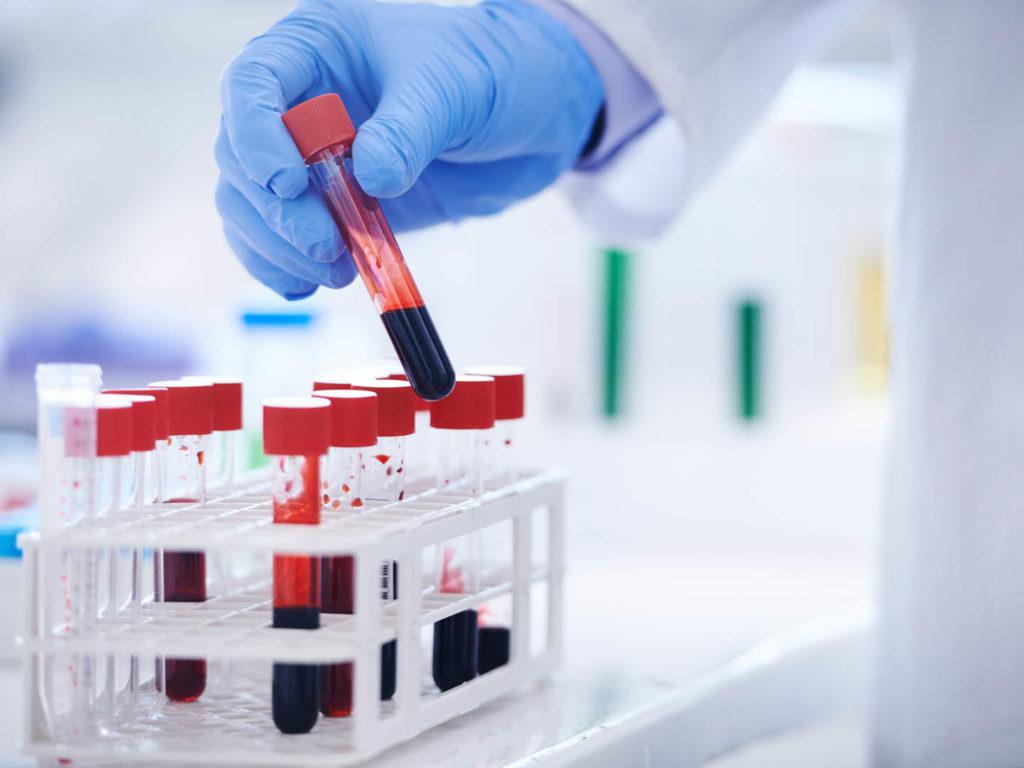Blood tests are one of the most common and essential diagnostic tools in modern medicine. They provide vital information about your health, helping doctors diagnose conditions, monitor treatment progress, and prevent diseases. From routine health checkups to identifying complex illnesses, blood tests play a crucial role in ensuring overall well-being.
What Are Blood Tests?
A blood test involves drawing a small sample of your blood to analyze various components, including red blood cells, white blood cells, platelets, and plasma. These tests can provide valuable insights into your:
-
General health
-
Nutritional status
-
Organ function
-
Immune system
Blood tests can detect a wide range of conditions, such as infections, anemia, diabetes, and heart disease.
Why Are Blood Tests Important?
Blood tests are essential for maintaining good health and diagnosing medical issues. Here are some key reasons why they are important:
1. Early Detection of Diseases
Blood tests can identify health problems in their early stages, allowing for timely treatment and better outcomes.
2. Monitoring Chronic Conditions
For individuals with chronic illnesses like diabetes or high cholesterol, blood tests help monitor the effectiveness of treatment and make necessary adjustments.
3. Assessing Overall Health
Routine blood tests provide a snapshot of your general health, helping you and your doctor identify potential risks and take preventive measures.
4. Guiding Treatment Plans
Blood tests offer critical data that help doctors create personalized treatment plans based on your specific needs.
Types of Blood Tests
There are various types of blood tests, each designed to analyze specific components of your blood. Here are some common ones:
1. Complete Blood Count (CBC)
-
Purpose: Measures the levels of red blood cells, white blood cells, hemoglobin, hematocrit, and platelets.
-
Why It's Done: To diagnose anemia, infections, and other blood-related conditions.
2. Basic Metabolic Panel (BMP)
-
Purpose: Checks electrolyte levels, blood sugar, and kidney function.
-
Why It's Done: To monitor diabetes, kidney disease, and dehydration.
3. Lipid Panel
-
Purpose: Measures cholesterol levels, including LDL (bad cholesterol), HDL (good cholesterol), and triglycerides.
-
Why It's Done: To assess heart health and risk of cardiovascular disease.
4. Liver Function Tests (LFTs)
-
Purpose: Evaluates liver enzymes, proteins, and bilirubin levels.
-
Why It's Done: To detect liver diseases such as hepatitis or fatty liver.
5. Thyroid Function Tests
-
Purpose: Measures levels of thyroid hormones (T3, T4, and TSH).
-
Why It's Done: To diagnose hypothyroidism or hyperthyroidism.
6. Blood Clotting Tests
-
Purpose: Assess how well your blood clots.
-
Why It's Done: To diagnose bleeding disorders or monitor blood-thinning medication.
7. Vitamin and Mineral Tests
-
Purpose: Measures levels of essential vitamins and minerals like vitamin D, B12, and iron.
-
Why It's Done: To detect deficiencies and guide supplementation.
8. Hormone Tests
-
Purpose: Analyzes levels of hormones like estrogen, testosterone, and cortisol.
-
Why It's Done: To evaluate reproductive health, stress levels, or hormonal imbalances.
What to Expect During a Blood Test
Knowing what happens during a blood test can help ease any anxiety you may have. Here’s a step-by-step overview:
1. Preparation
-
Fasting: Some tests, like lipid panels or glucose tests, require fasting for 8-12 hours.
-
Hydration: Drinking water before the test helps make veins more accessible.
-
Medication: Inform your doctor about any medications or supplements you’re taking.
2. Procedure
-
Step 1: A healthcare professional cleans the area, usually your arm, with an antiseptic.
-
Step 2: A tourniquet is applied to make the veins more prominent.
-
Step 3: A needle is inserted into the vein to draw blood.
-
Step 4: The sample is collected in one or more test tubes.
-
Step 5: The needle is removed, and a bandage is applied.
3. Aftercare
-
Apply gentle pressure to the site to prevent bruising.
-
Avoid strenuous activities with the arm used for the test.
Interpreting Blood Test Results
Blood test results are typically presented in a lab report with normal ranges for each parameter. Here’s how to understand them:
1. Normal Range
-
Indicates healthy levels for each component.
2. Abnormal Results
-
High or low levels may indicate potential health issues.
3. Follow-Up
-
Discuss results with your doctor to understand what they mean and whether further testing or treatment is required.
Factors That Can Affect Blood Test Results
Several factors can influence the accuracy of your blood test results:
-
Diet: Consuming certain foods or drinks before the test.
-
Medications: Some drugs can alter test outcomes.
-
Hydration: Dehydration can affect electrolyte levels.
-
Stress: High stress can temporarily impact certain hormones and blood sugar.
Tips for a Smooth Blood Test Experience
-
Stay Relaxed: Take deep breaths to stay calm during the procedure.
-
Be Honest: Share your medical history and any symptoms with your healthcare provider.
-
Stay Hydrated: Proper hydration makes the process quicker and easier.
-
Ask Questions: Don’t hesitate to clarify doubts with your doctor or technician.
The Role of Regular Blood Tests in Preventive Healthcare
Routine blood tests are a cornerstone of preventive healthcare. They help identify risks before symptoms appear, enabling timely intervention. Annual or bi-annual checkups that include blood tests can:
-
Detect chronic diseases early.
-
Monitor lifestyle changes’ impact on health.
-
Provide a baseline for future comparisons.
Final Thoughts
Blood tests are more than just diagnostic tools; they are gateways to better health and well-being. Whether it’s a routine checkup or a specific health concern, blood tests provide invaluable insights that guide medical decisions. By understanding their importance and preparing for them, you can take proactive steps toward maintaining your health.



